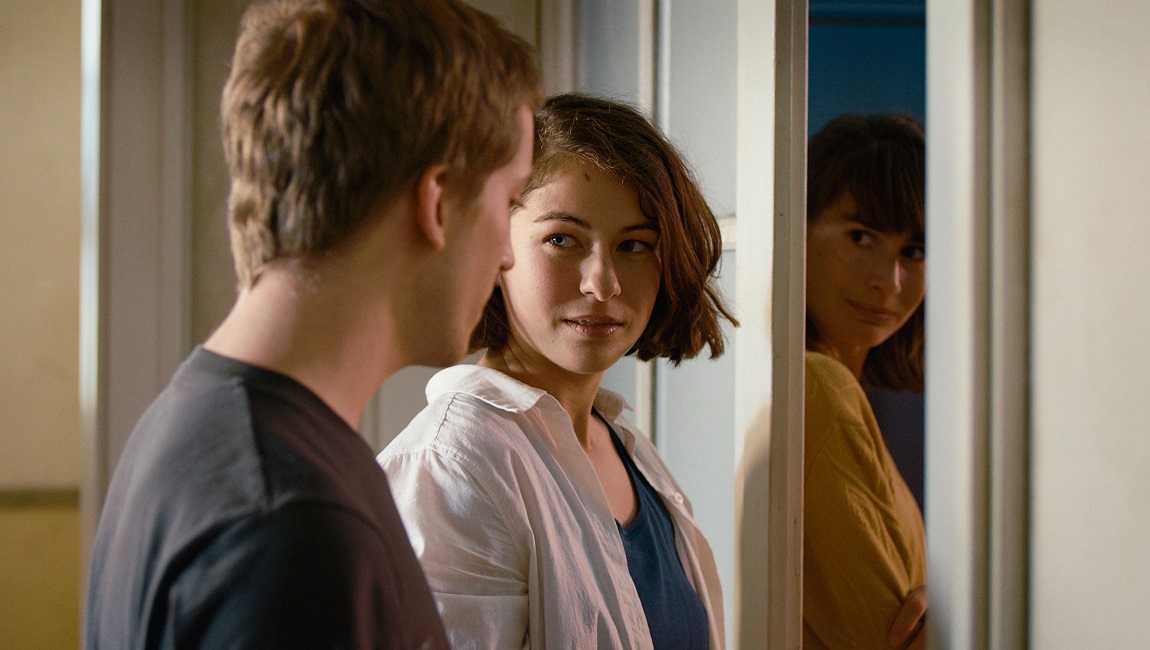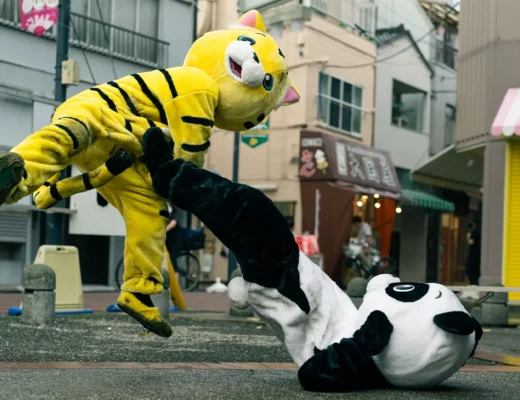It’s a commonly held misconception that the exploitation cinema of the 1970s and early ’80s was “cheesy,” constituting unintentionally funny, poorly made trash notable only for gratuitous violence and sex. Certainly a great many films of the time fit that description neatly, but so would many made today. Recent attempts at recapturing the spirited, sleazy tone of classic exploitation films (Piranha 3D and Black Dynamite come to mind) fail precisely because their only touchstone is a sort of “so bad it’s good” irony, intentionally camping it up as a means of coddling the audience, making them comfortable with the heavy dose of unsavory material by winking at them: “It’s OK, you don’t have to take this seriously.” But the inadvertent side effect is the muting of any intelligence or content the film might have.
Which brings us to Robert Rodriguez’s Machete, based on the faux-trailer created for the double feature film Grindhouse. Legendary character actor Danny Trejo stars as the titular badass, an ex-Federale out for revenge against the vicious drug lord (Steven Seagal) who murdered his wife and left him for dead. Now toiling as a day laborer in Los Angeles, he’s sucked into a plot to assassinate a bigoted politician (Robert De Niro) who’s drawing battle lines on the Mexican border and advocating the wholesale murder of illegal immigrants. All of this, taken on its own, would be a perfect premise on which to build a lean, angry, violent bit of pandering (the foundation of exploitation filmmaking). But Rodriguez sabotages his film with winking jokes, inept plotting, and his patented fifth-grader’s exaggerated sense of “cool.”
The slapdash script appears to have been retrofitted to match our brief glimpse of a nonexistent film created years ago as an elaborate joke. For instance, a shot in the “trailer” of Machete getting it on with two ladies near a waterfall results in the shoehorning in of an entire subplot involving Lindsay Lohan as the sex-happy daughter of one of the bad guys — one of many examples of the story repeatedly contorting itself to meet the demands of Rodriguez’s movie prank. This kind of twisting and turning transforms Machete into a sluggish cartoon, lurching from one money shot or splatter gag to the next — only it forgets that we’ve seen the best parts already.
The action is also wildly inconsistent. Rodriguez’s run-and-gun DIY aesthetic poisons nearly every major sequence. Quick cutting, tight close-ups, step-framing, a complete disregard for geography… these are the attributes of creaky, lumbering Hollywood action, not the supposedly economical and personal style of a guy who claims he can do everything himself, only better. Classic exploitation films were forced by budgetary constraints and tight schedules to make ingenious use of real locations and scuzzy sets; Rodriguez shoots everything in his backyard studio in Austin. It’s this very lack of pressure or necessity that breeds the laziness that infects the film.
Rodriguez’s idiotic sense of ironic humor is also a liability. Every romantic encounter Machete has with the many lovely ladies in the film (Michelle Rodriguez and Jessica Alba, both game and entirely wasted) is punctuated with “wakka-chicka” porno-style music. It’s a hacky joke, it’s exactly the kind of winking crap that undercuts any sexual tension or titillation, and it’s probably there because Rodriguez is afraid of making people uncomfortable with the sight of a 66-year-old Trejo seducing a lithe Latina hottie. Or how about the bad guys watching an infomercial for a hitman, played by horror-makeup icon Tom Savini? It’s foolish to expect too much realism in an exploitation film, but lazy fourth-wall-breaking gags like this only serve to make the audience aware that it’s only a movie, that nothing is at stake.
A certain amount of gravitas is absolutely essential for an exploitation film. The truest examples of the form were born out of under-served audiences and subcultures desperate to see themselves represented in cinema: teenagers, women, African- and Asian-Americans. All had some bone to pick with the establishment, and although most of the films aimed at them didn’t openly confront issues like bigotry or gender inequality, or poverty, the best ones were absolutely predicated on such things.
A great deal has been made of the subtext concerning illegal immigration in Machete (text, actually, as it’s right at the forefront of the story). But as Machete leads an army of day-laborers and gang-bangers against the racist white hordes, Rodriguez can’t help but pack the scenes with Mexicans in bouncing lo-riders and dew-rags, their silly cars equipped with Gatling guns and missile launchers. The idea of an oppressed underclass rebelling is a potent and, in this case, extremely timely one, and such a thing has been a cornerstone of racially motivated exploitation cinema (see for example Arthur Marks’s Bucktown). But by reducing the players, alternately, to corny superheroes and silly stereotypes, he dilutes that motivating, inciting (and, yes, pandering) anger. The film no longer has any reason for being: what could have been vitriolic satire is now merely self-parody, and the idea of the illegal immigrants fighting for themselves is not meant to be taken seriously.







